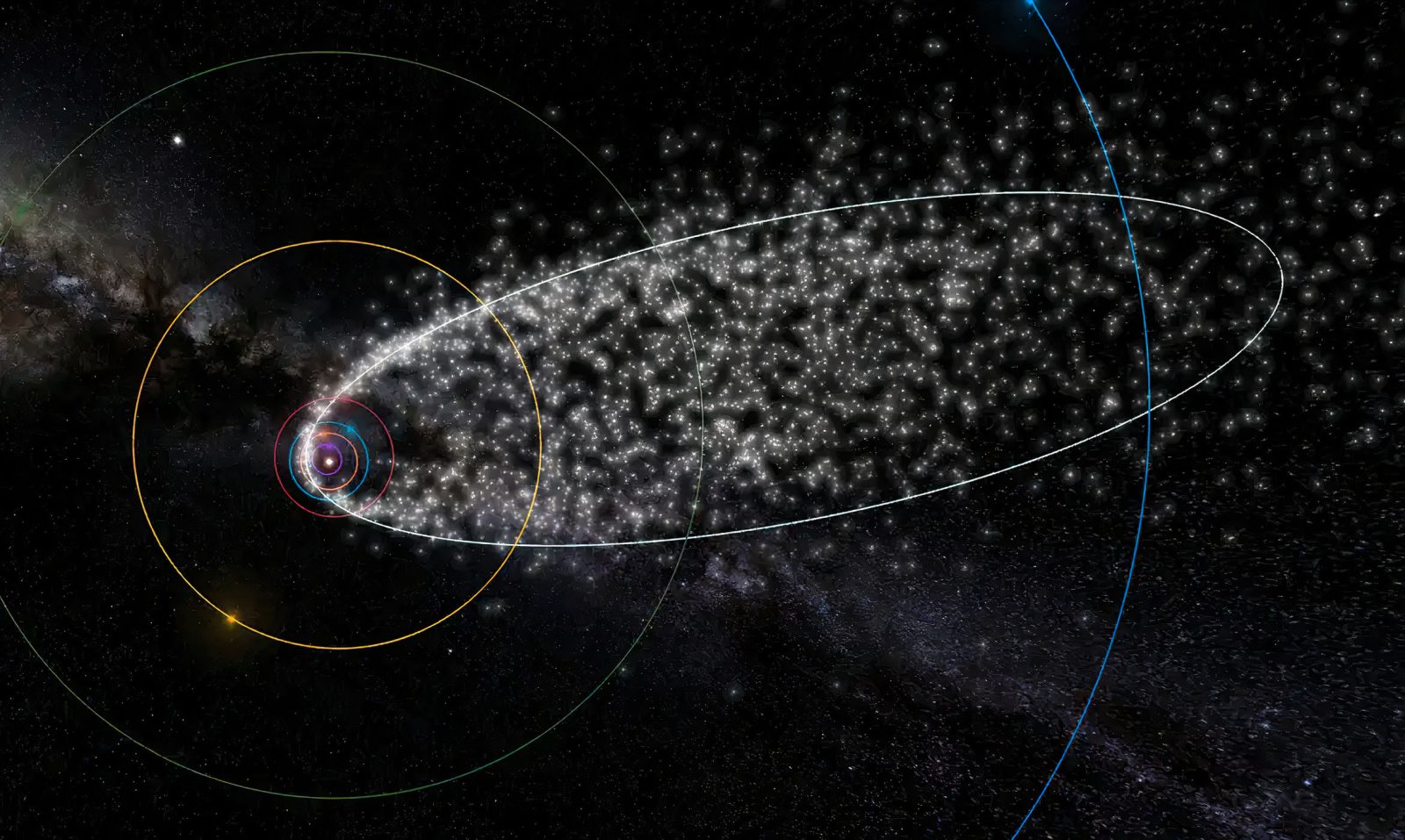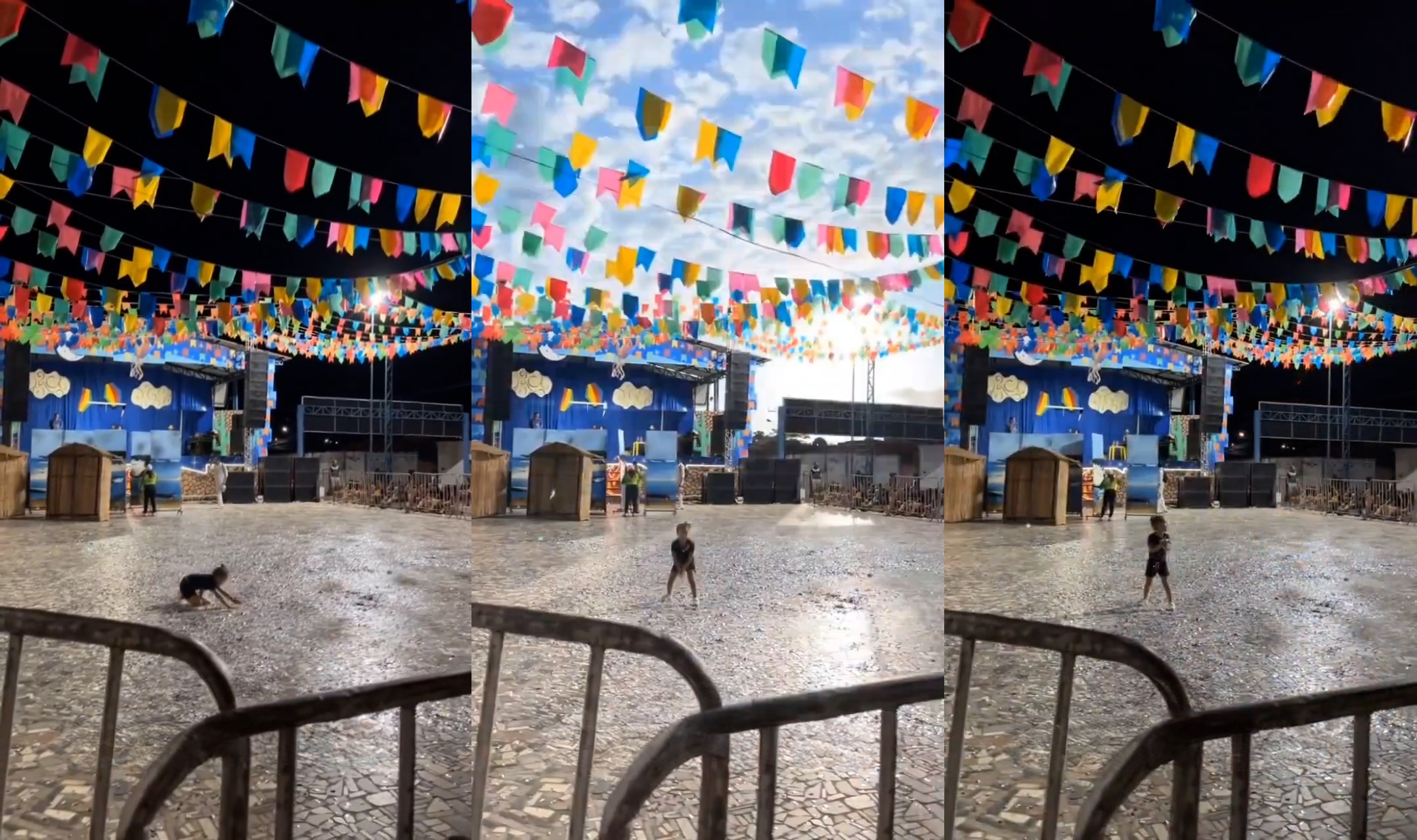Meteor Passage Lights Up the Sky and Turns Night into Day in Brazil

|
Getting your Trinity Audio player ready... |
Imagine standing on your porch, unwinding after a long day, or amidst a festive gathering when suddenly, night transforms into day. This is precisely what happened on an ordinary July evening in northeastern Brazil. A bright meteor surprised residents in Piauí, Bahia, Ceará, and Rio Grande do Norte, lighting up the night sky and providing a celestial spectacle that left everyone in awe.
The brilliant flash lasted only a few seconds. Still, it was captured by security cameras and shared widely by the public. Larissa Xavier from Elesbão Veloso was one of those who witnessed the event. In videos posted on social media, a child can be seen playing with confetti at a June festival when the bright flash illuminates the sky in the background. “Oh my God, a meteor just fell in my town,” she wrote in her post. Vanessa Toledo from Dom Expedito Lopes also shared footage, recording a musical performance when the flash appeared.

“The population is not at risk from this type of phenomenon. It’s widespread for these bodies not to reach the ground in solid form. They usually burn up completely, being destroyed in the atmosphere. Accidents involving meteorites, which occur when these meteors reach Earth’s surface, are infrequent,” she explains.
Marcelo Antônio, who coordinates the Brazilian Meteor Research Project, confirms that such phenomena pose no threat. He said this was a super bolide, also known as an extremely bright meteor. The brilliance is caused by the meteor vaporizing, releasing a large amount of luminous energy.
“Considering that three-quarters of our planet is covered by water, most of these phenomena occur over the ocean. Therefore, we rarely observe them. When they are seen, it creates a spectacular impression,” Marcelo notes.
Residents Alarmed
According to the Brazilian Meteor Monitoring Network (Bramon), fragments of the meteor may have fallen near the town of Padre Marcos. The estimated location was determined from images capturing the bolide. However, debris has yet to be found. According to the town’s mayor, Valdinar Silva, there has been a surge in tourism following the event, attracting national and international interest. He notes the most startling aspect was the noise, similar to a jet engine falling.
“It was that blue light, so intense it seemed like daytime and the tremors. This happens because the meteor’s disintegration can produce sound upon entering the atmosphere, causing the tremors,” he explains.

Delta Aquarids
This type of meteor shower occurs annually and is named after the constellation Aquarius, as the meteors appear to emanate from this direction. During the celestial event, observers can expect to see up to 20 meteors per hour, depending on viewing conditions. The Delta Aquarids can be seen from anywhere worldwide, though they are more visible in the southern hemisphere. However, visibility also depends on light pollution and weather conditions.
The Delta Aquarids results from Earth’s passage through debris left by comets or asteroids in its orbit around the Sun. This debris, consisting of tiny particles of rock and ice, enters Earth’s atmosphere at high speeds. As it does, friction with air molecules heats it to incandescence, creating the bright trails we associate with a meteor shower.












